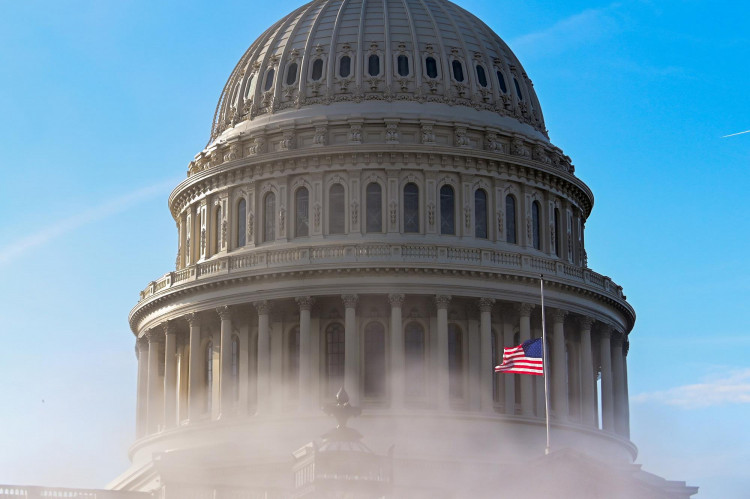A Georgia judge on Friday rejected Kenneth Chesebro's attempt to invalidate his guilty plea in the sweeping Georgia election interference case involving Donald Trump and 17 other defendants. Chesebro, a former Trump campaign lawyer, had sought to overturn his plea on constitutional grounds, but the ruling underscores the ongoing legal complexities surrounding the high-profile case.
Chesebro was charged in August 2023 alongside Trump and others in a far-reaching indictment accusing them of conspiring to overturn Trump's 2020 election loss in Georgia. Shortly before his trial, Chesebro struck a plea deal, admitting to a single conspiracy count related to filing false documents. His agreement with prosecutors required him to cooperate in the broader investigation.
In a motion filed earlier this month, Chesebro's lawyer, Manny Arora, argued that the guilty plea should be invalidated after Fulton County Superior Court Judge Scott McAfee dismissed the very charge to which Chesebro had pleaded guilty. Arora claimed that upholding the plea would violate Chesebro's constitutional right to due process.
Judge McAfee, however, dismissed the motion, calling it procedurally "defective in more ways than one." He noted that Chesebro had already pleaded guilty to the indictment and had not previously raised the arguments that led to the dismissal of the charge. Additionally, McAfee ruled that Chesebro's request was untimely, as motions to invalidate a plea must be filed during the same court term in which the plea was entered.
BREAKING: Trump co-defendant and campaign legal advisor Kenneth Chesebro, the "architect" of the false electors scheme, pleads guilty in Georgia RICO case.
As a part of his plea deal, Chesebro must testify truthfully at trial and continue to provide documents and evidence to the… pic.twitter.com/iE8R94IyHm — MSNBC (@MSNBC) October 20, 2023
Arora responded to the ruling by announcing plans to file a habeas corpus motion, a civil proceeding to challenge the conviction. He expressed confidence that this route would ultimately lead to the invalidation of Chesebro's guilty plea.
Chesebro's guilty plea stems from his involvement in a scheme to create and submit false electoral certificates in Georgia and other battleground states Trump lost in 2020. Prosecutors alleged that Chesebro coordinated with other defendants to present these fraudulent documents to the National Archives and Congress as part of an effort to overturn the election results. Daysha Young, executive district attorney in Fulton County, said Chesebro provided "detailed instructions" to co-conspirators for creating and disseminating the false documents.
Despite his guilty plea, Chesebro was sentenced under Georgia's First Offender Act, meaning his record could be expunged if he successfully completes his probation without violating its terms.
The case has broader implications for Trump and other defendants as it unfolds. Trump, set to return to the White House next month, has sought to have the charges against him dismissed, arguing that his re-election reflects the will of the American people and should shield him from prosecution. Trump's legal team has filed similar motions in cases brought by the Justice Department and in New York, where he faces unrelated criminal charges.
While federal judges have dismissed two cases against Trump following his election victory, the Georgia case remains pending. The state appellate court is currently reviewing whether Fulton County District Attorney Fani Willis should be removed from the case, as some defendants have alleged ethical and financial conflicts of interest.
Legal experts suggest the Georgia case could be paused if Trump assumes office, based on Department of Justice policies against prosecuting sitting presidents. However, co-defendants in the case may still face prosecution. Chris Timmons, a Georgia trial lawyer and former prosecutor, noted that "regular order will prevail for the remaining co-defendants even while Donald Trump occupies the White House."
Chesebro's cooperation could provide prosecutors with critical insights into the alleged conspiracy, potentially strengthening the case against Trump and other key players. His testimony may illuminate efforts by senior Trump allies, including attorney John Eastman and former Trump lawyer Rudy Giuliani, to implement the fake elector strategy.






